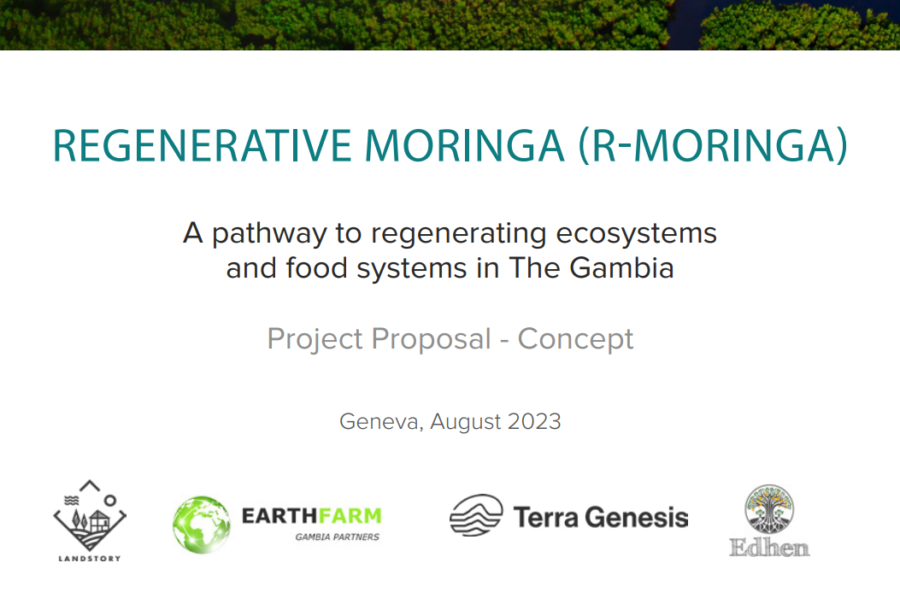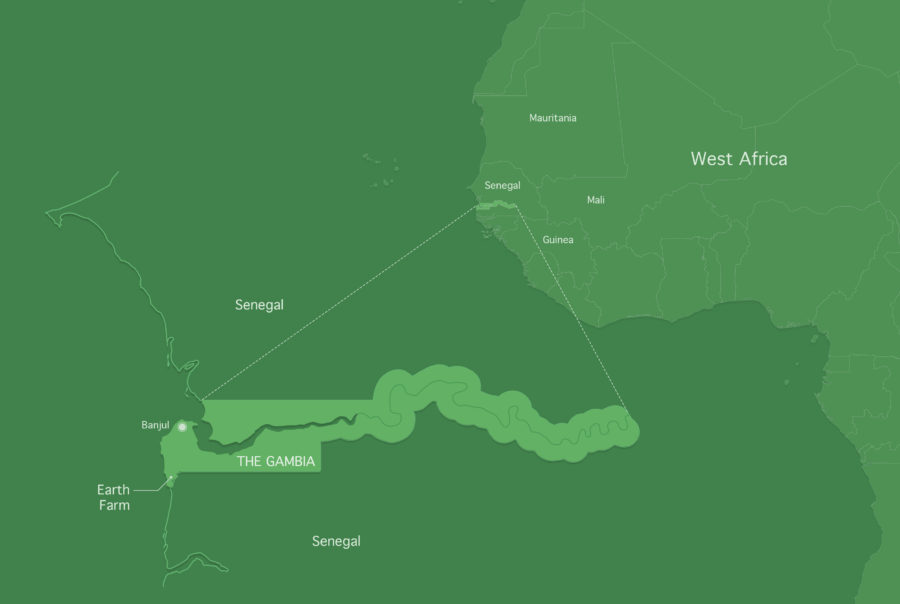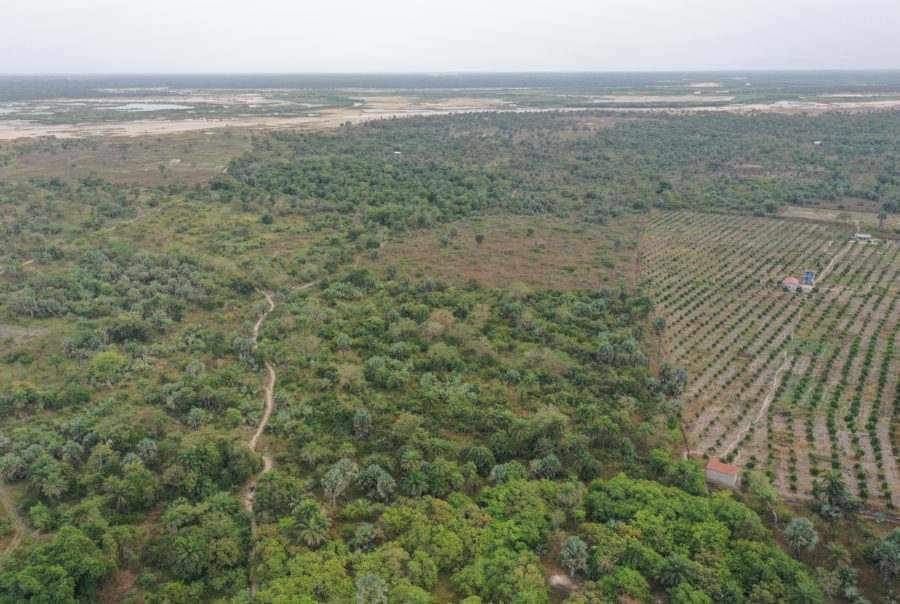REGENERATIVE MORINGA (R-MORINGA)
A pathway to regenerating ecosystems and food systems in The Gambia



Partners: Project locally developed by EARTH FARM GAMBIA, supported by LANDSTORY DESIGN, TERRA GENESIS INTERNATIONAL & Edhen (proposal writing, holistic project development/ coordination)
Vision: To unleash the potential of regenerative, productive & profitable agroforestry systems, to empower the communities of Kombo South, The Gambia.
Context: The Gambia is a country known for its rich ecological and cultural diversity. Agriculture plays a vital role in Gambian life and contributes 25% to the country’s economy. However, currently, the food system in The Gambia is facing significant challenges, with eroding traditional practices and unsustainable monoculture systems competing for limited resources. This undermines local food security and public health as well as degrades agricultural landscapes.
The R-MORINGA project recognizes the urgency to advance the Gambian food system, for the benefit of local communities and ecosystems. The project partners have been invited by EARTH FARM GAMBIA to establish a pilot project with the communities of the Kombo South district, by co-developing locally adapted agroforestry systems and associated enterprises on ancestral and common lands.
Objectives: The main objectives of R-MORINGA’s holistic development approach are:
- Design & Education: Holistic context evaluation and collaborative design of locally adapted agroforestry systems, combined with capacity building of stakeholders.
- Planting: Establishment of the co-designed agroforestry systems for and with the farmers in Kombo South.
- Processing & marketing: Establish local processing infrastructure, skills and quality management, and marketing of the raw products from the established agroforestry farms, in collaboration with impact investors and partners from the food industry.
By implementing these integrated development steps, the R-MORINGA project aims to build the capacity of local stakeholders as well as contribute to food security, climate resilience and economic prosperity. The established agroforestry farms will serve as demonstration models for wider adoption and research. Lastly, we hold the premise that the collaborative approach will inspire long-term partnerships and a positive impact on sustainable land-use across The Gambia.
